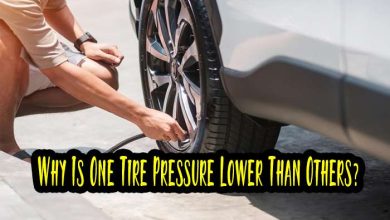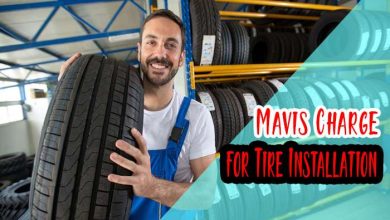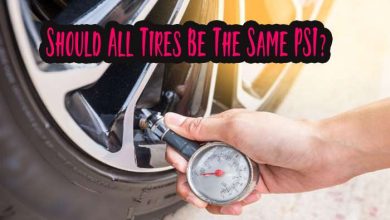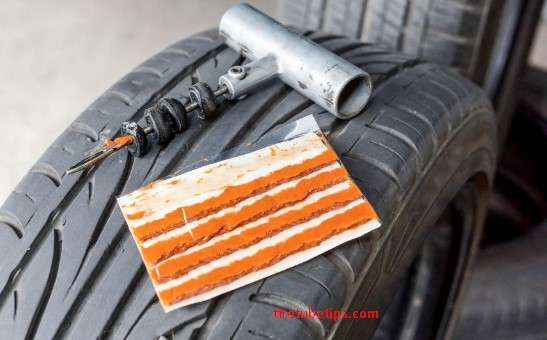A to Z of Tubeless Tires | Are They Good or Bad
The eternal debate persists in the vast realm of tires, where rubber meets the road: Are tubeless tires better? As a tire enthusiast with a trove of knowledge about the intricacies of tires and rims, let me unravel this mystery for you.
We’ll delve into the nuances, dispel misconceptions, and navigate the rubbery landscape to help you make an informed decision.
Yes, tubeless tires are better. The advantages in terms of performance, safety, and long-term cost savings make them a compelling choice for any driver seeking an upgraded experience on the road.
Understanding Tubeless Tires
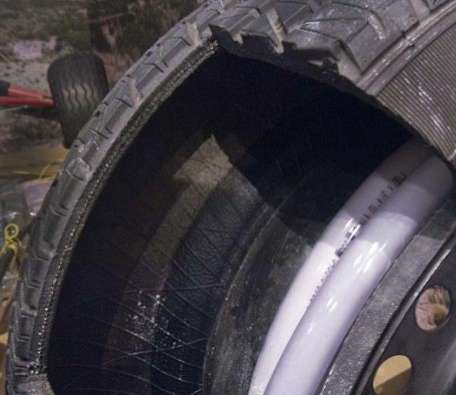
Before we dive into the comparison, let’s grasp the essence of tubeless tires. Unlike traditional tires, tubeless ones lack an inner tube.
The tire’s inner lining serves the dual purpose of holding the air and sealing punctures, making them resilient against flats. This fundamental design shift brings advantages that transform your driving experience.
Read More: Are Retread Tires Safe?
Performance Benefits of Tubeless Tires
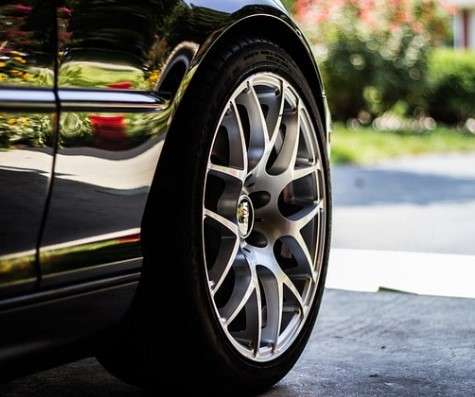
1. The Smooth Ride Symphony
Gone are the days of bumpy rides. Tubeless tires, with their reinforced sidewalls, offer a smoother journey. The enhanced flexibility absorbs road imperfections, turning pothole-ridden commutes into a symphony of smooth rides.
2. Improved Fuel Efficiency
Rolling resistance is the arch-nemesis of fuel efficiency. Tubeless tires, being inherently lighter, reduce rolling resistance. This translates into improved fuel efficiency, saving both the environment and your hard-earned dollars.
3. Puncture Resilience
A nail in the road won’t puncture your plans. Tubeless tires boast self-sealing capabilities, swiftly plugging punctures before they wreak havoc. Say goodbye to inconvenient pit stops and tire changes on the side of the road.
4. Enhanced Stability
Embrace the curves with confidence. Tubeless tires offer better stability, especially during high-speed maneuvers. The improved contact with the road ensures that your vehicle responds precisely to every twist and turn.
5. Quieter Journeys
Let your tires whisper, not roar. The absence of a tube eliminates the vibrations that contribute to road noise. Tubeless tires make your journeys quieter, allowing you to savor the serenity inside your vehicle.
Cost Considerations of Tubeless Tires
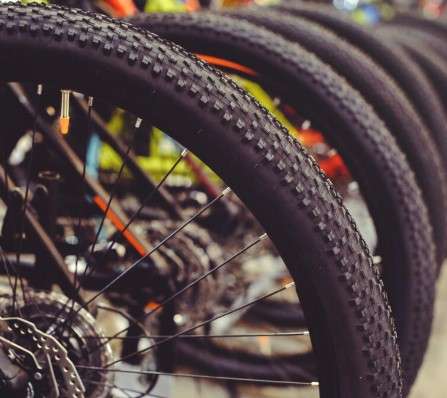
While the benefits are enticing, let’s address the elephant in the room: the cost.
1. Initial Investment
Yes, tubeless tires might have a slightly higher upfront cost compared to their tubed counterparts. However, consider it an investment in a superior driving experience, puncture-free adventures, and long-term savings.
Read Also: Can I Put Different Brand Tires on My Car?
2. Repair Expenses
Tubeless tires are more cost-effective in the long run. The self-sealing mechanism reduces the frequency of tire repairs and replacements, saving you from shelling out money for every stray nail on the road.
3. Fuel Savings
Take notice of the potential fuel savings. The improved fuel efficiency of tubeless tires can contribute to significant cost reductions over the life of the tires.
Common Misconceptions about Tubeless Tires
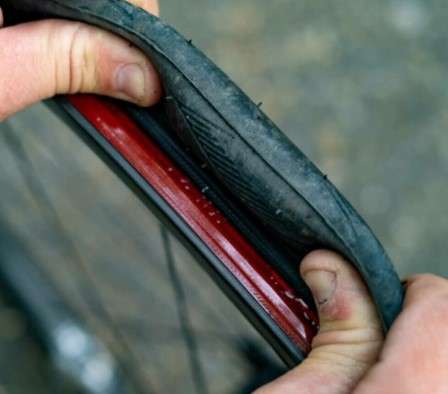
Let’s debunk a few myths that might be lingering in the air like a flat tire hissing silently.
1. Myth: Tubeless Tires are Hard to Install
Reality: Modern tubeless tire technology has simplified the installation process. Many vehicles come factory-equipped with tubeless tires, and professionals can seamlessly retrofit them onto existing rims.
2. Myth: Tubeless Tires are Prone to Rim Leaks
Reality: Proper installation and regular maintenance negate the risk of rim leaks. Tubeless tires, when fitted correctly, create an airtight seal with the rim, ensuring a leak-free driving experience.
3. Myth: Tubeless Tires are Only for High-End Vehicles
Reality: Tubeless tires are available across a wide range of vehicles. From compact cars to heavy-duty trucks, the benefits of tubeless technology are accessible to all.
Are Tubeless Tires Better?
Are Tubeless Tires Better? Whether tubeless tires are better than tubed tires depends on various factors, including your riding style, the type of terrain you ride on, and your personal preferences.
Here is a summary of the pros and cons of tubeless tires to help you decide:
Pros:
- Self-sealing: Tubeless tires have a sealant inside that can seal small punctures, preventing them from becoming flats. This is a significant advantage over tubed tires, which can become flat immediately if punctured.
- Lower rolling resistance: Tubeless tires can be ridden at lower pressures than tubed tires, improving rolling resistance and making them faster.
- Improved traction: Tubeless tires conform to the terrain better than tubed tires, which can improve traction, especially in corners and on loose surfaces.
- Lighter weight: Tubeless tires are typically lighter than tubed tires, which can save weight on your bike.
- More comfortable ride: Tubeless tires can provide a more comfortable ride, as they can absorb more impact than tubed tires.
Cons:
- More difficult to set up: Tubeless tires can be more challenging to set up than tubed tires and require special rims, valves, and sealant.
- Not all rims are tubeless compatible: Make sure your edges are tubeless consistent before you buy tubeless tires.
- Can be messy: If you get a flat with a tubeless tire, it can be messy to clean up the sealant.
- Not as widely available: Tubeless tires are less widely known than tubed tires, so you may have to order them online or from a specialty shop.
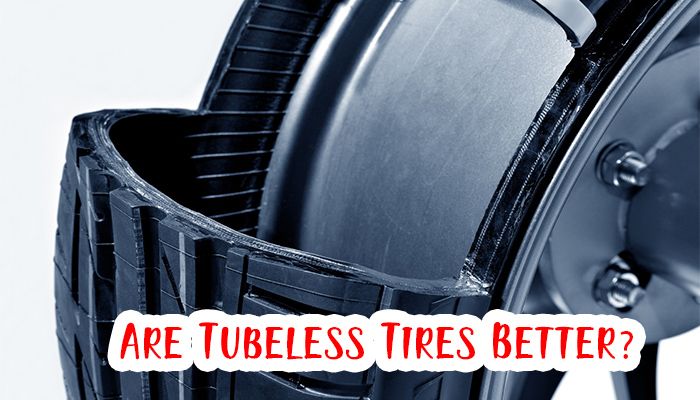
Overall, tubeless tires offer several advantages over tubed tires, but they are not without their drawbacks. If you are a serious cyclist who rides on a variety of terrain, tubeless tires are a good option.
However, if you are a casual rider or you are on a tight budget, tubed tires may be a better choice.
Here are some additional factors to consider:
- Your riding style: If you are a hard-charging rider who is prone to flats, tubeless tires can save you a lot of time and hassle.
- The type of terrain you ride on: Tubeless tires are especially beneficial on rough terrain, such as gravel or singletrack.
- Your personal preferences: Some people prefer the feel of tubeless tires.
Choosing the Right Tubeless Tire
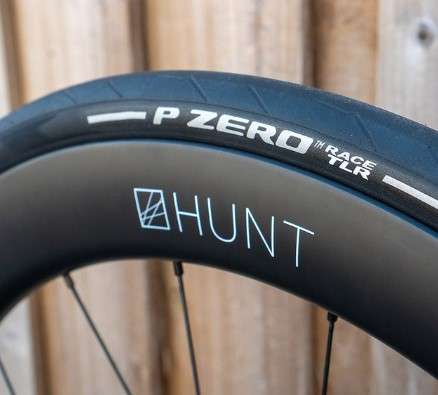
1. Tread Patterns Decoded
Tread matters more than you think. The correct tread pattern enhances grip, handling, and performance.
Consider your driving conditions—whether it’s urban roads, off-road adventures, or a mix of both—and choose a tread pattern that aligns with your needs.
2. Size Does Matter
One size doesn’t fit all, especially in the tire world. Consult your vehicle’s manual or a tire professional to ensure you select the right size for optimal performance and safety.
3. Brand Trust
Put your faith in reputable brands. Trusted tire manufacturers invest in research and technology to deliver reliable, high-performance products. Don’t compromise on safety for a few bucks.
Conclusion
As we roll towards the conclusion, remember that your choice of tires shapes your journey. Embrace the tubeless revolution, revel in the benefits, and share your experiences with fellow road warriors.
Together, we navigate the vast terrain of tire choices, ensuring every mile is a testament to the joy of driving.
We’d love to hear your tire tales! Share your experiences with tubeless tires or any tire-related projects you’ve undertaken.
The road community thrives on shared wisdom, so don’t hesitate to join the conversation in the comments section.
Reference Link
For more detailed insights into tire technology, refer to The Tire Society.
Glossary
- Rolling Resistance: The force resisting a tire’s motion when moving.
- Tread Pattern: The design on the tire’s surface that provides traction.
- Puncture Resilience: The ability of a tire to resist and self-seal punctures.
- Tubeless Revolution: The shift towards tubeless tire technology for enhanced performance and safety.
